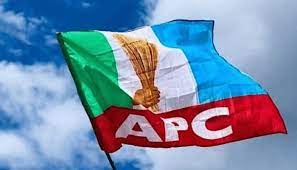The recent dissolution of the management team of the support groups in the All Progressives Congress, APC, was received with mixed reactions across the APC family. To many, it was a welcome development, citing the prolonged leadership crises that have torn apart the members to justify the dissolution.
The crises erupted shortly before the 2023 general elections, and led to the removal of the groups’ director general, Dr Nasiru Ladan Argungu, from office. The attitude of the typical Nigerian politician quickly manifested, as the ousted DG fought back leading to factionalisation with two camps emerging, one headed by him and the other led by Hajiya Dr Maryam Yunusa Danjaki, who was Ladan’s deputy.
Accusations and counter accusations reigned as each camp engaged in smear campaigns, ignoring the negative consequences of their clashes to the party and candidates, who relied on the groups to mobilise votes at the elections. It would seem that APC leadership at the time, under Senator Abdullahi Adamu, was indifferent to the support groups’ crises as things turned out.
This indifference was linked to the emergence of Bola Tinubu as the party’s presidential flag bearer at the primary, which was against the wishes of the top leadership of the party, including the presidency, that was actually rooting for its preferred candidate (this was later confirmed by Abdullahi Adamu himself to news men, after he was forced out of office, shortly after the election).
Not keen on getting its own candidate, now President Bola Tinubu, elected, the former leadership under Abdullahi Adamu simply turned a blind eye on the support groups and allowed them to fight dirty. The groups remained in disarray while the elections came, with only a faction, led by Maryam Yunusa Danjaki, securing the rare privilege of having a private audience with Tinubu in his residence in Maitama, Abuja.
At the end of that meeting, Tinubu reportedly ordered that some mobilisation funds be given to the group members to travel across the country to mobilise their members to vote for the party. Shockingly, after securing victory for the party, the support groups received no accolade, nor mention by the party leadership as having contributed to the successful outcomes at the elections.
The new party leadership under its current National Chairman, Abdullahi Umar Ganduje, therefore inherited the crises as one of the legacies of his predecessor. However, he now appears to have been influenced by the briefs given to him by the officials in charge of the support groups directorate, which must have informed the dissolution of the groups management, thus, ending the groups’ over a year’s conflicts.
The party, in addition to the dissolution, has hinted at the likelihood of conducting elections into all the executive positions in the support groups, and to distribute the positions across the six geopolitical zones for equity and fair representation. Signals from the national secretariat of the party, show that the office of the next director general of the support groups will be zoned to the South-west.
This can hardly be faulted given that the former embattled DG and his vice were all from the North-west, and the bulk of the dissolved management positions were also held by northerners, in complete abnegation of fairness and justice. With the new development, the coast may now be clear for the emergence of a more credible leadership from the South-west that will effectively manage the affairs of the support groups and prepare them for the 2027 general elections.
Prominent among the names being suggested to lead the new Amalgamated APC Support Groups is Alhaji Salman Akorede, a renowned ICT guru and family member of Alhaja Habibat Mogaji, the late Iyaloja of Nigeria, and mother of Mr President. Sources around the presidency claim that Salman is favoured not only because of his family links with Mr President, but, that, he was instrumental to the formation of Abibat Mogaji Beneficiaries Vanguard (AMBVBAT) and a number of support groups spread across the South-west and other parts of the country that campaigned vigorously for Tinubu.
He was the national director ICT, at the support groups head office in Abuja, as well as the Lagos state coordinator of the Amalgamated Support Groups. He is a well travelled with connections in the political and ICT world, experienced business man and public administrator, all attributes he will bring to bear on the job. It should be expected, rightly, that President Tinubu will not take chances that will allow support groups to fall into the kind of ugly situation witnessed under the former party leadership.
Against the backdrop of the well known plan for a second term, Mr President will need to get the right handle on the APC support groups to run his re-election campaigns in 2027, seamlessly. Many have the wrong notion that the support groups hold the ace for President Tinubu’s re-election, given the threat by the opposition parties that may coalesce into a formidable political force to wrest power from the ruling APC in 2027.
In order to prepare for the epic battle, Mr President will need a trusted and close ally to manage the affairs of the APC support groups, which would be relied upon to provide the needed counter force and buffer against the opposition and other forces within the party, that may be working against the interest of Mr President. This, perhaps may be a pointer to the interest Mr President is reportedly showing in having his trusted person to take charge of the Amalgamated APC Support Groups, as a key strategy for the 2027 reelection bid.
Time will tell!
Ibrahim writes from Abuja.




